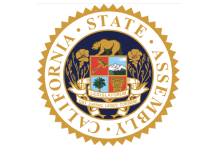 Last Friday, representatives from the California Labor Commissioner’s Office joined the CalChamber in a free live webinar to educate employers on common wage-and-hour violations and how to avoid them.
Last Friday, representatives from the California Labor Commissioner’s Office joined the CalChamber in a free live webinar to educate employers on common wage-and-hour violations and how to avoid them.
The webinar is part of the Employer Outreach Series of live webinars with the Labor Commissioner’s Office that break down some of the state’s most important labor laws and include Q&A sessions with attendees.
The January 22 webinar, “Typical Violations to Avoid with Non-Exempt Employees,” was moderated by California Chamber of Commerce Executive Vice President and General Counsel Erika Frank, and featured Senior Deputy Labor Commissioner Von A. Boyenger and Max Norris, staff attorney at the Labor Commissioner’s Office.
Webinar Highlights
Through the use of presentation slides (available here), Boyenger and Norris explain some of the most common wage-and-hour laws, including:
- Meal and rest periods;
- Mileage reimbursement;
- Minimum wages and minimum wage schedule;
- Overtime calculations;
- Pay periods;
- Piece rate and rest period calculations;
- Recording keeping best practices;
- Reporting time pay; and
- Tips and Gratuities.
Boyenger and Norris break down key definitions, such as what constitutes “hours worked,” and what differentiates “travel time” from “mileage reimbursement.” When covering the topic of tips and gratuities, Boyenger explains that Labor Code Section 350 specifies that a gratuity is a tip, not a wage. However, he pointed out that some agencies, such as the California Employment Development Department (EDD), do consider a tip a wage.
Visual examples are also used to illustrate what labor laws require. For example, Norris shows paystub examples and points out the information that is legally required to be included, such as the pay rate, overtime hours and rate, and piece rate. He also uses worksheets to explain how to calculate overtime pay.
Throughout the webinar, Boyenger and Norris point out what areas are most problematic for employers. Norris says that one of the biggest stumbling blocks for employers is not keeping proper records. He explains that the top two things employers don’t do are to have a signed written agreement between the parties, and a written statement of basic conditions for workers, such as rate of pay, the start of the work week, etc. These two items are important because if a claim of violation is filed, the situation becomes a “he said/she said” scenario where the employer must find a way to prove their facts in the case.
During the webinar, Frank asks pertinent questions and clarification on the laws discussed in the moment. Once the presentation concludes, attendees are able to ask Boyenger and Norris questions directly.
The next Employer Outreach Series webinar will focus on typical violations of exempt employees and will be held on March 26.


